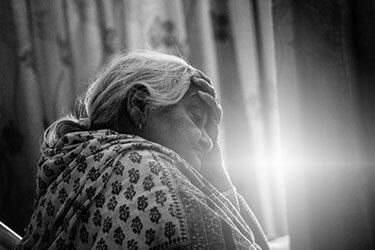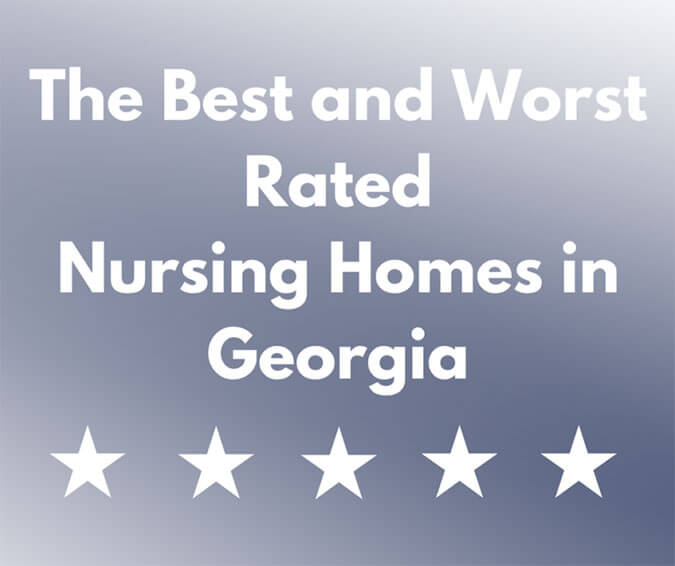How to Choose a Nursing Home » Special Focus Facility List
What is a Special Focus Nursing Home Facility?
 A Special Focus Facility is a nursing home or long-term care facility that fails to meet specified criteria, so they are put on a list.
A Special Focus Facility is a nursing home or long-term care facility that fails to meet specified criteria, so they are put on a list.
The facilities found on the Special Focus Facility list fail to meet the standard quality of care – or have in the past — and are currently included in a special program to make improvements.
Most of the facilities listed have repeat violations.
Special Focus Nursing Homes are identified by the Centers for Medicare & Medicaid Services (CMS) as among those providing the poorest quality of care to their residents.
These nursing homes fail to meet the standard of care that CMS requires nursing homes and usually have a long history of repeat violations.
CMS requires that the nursing homes enter into a special program to improve the quality of their care and monitors them closely. You should exercise extreme caution before placing a loved one in a special focus nursing home.
Georgia Special Focus Nursing Homes
The current list of Special Focus Nursing Homes, which was updated as of April 2024, has the following Georgia nursing homes listed:
- Meadowbrook Health and Rehab – 4608 Lawrenceville Highway Tucker, GA 30084. The date of the most recent inspection is not listed. This facility has been on the Special Focus Facility list for 1 month.
- Legacy Transitional Care & Rehabilitation – 460 Auburn Ave NE Atlanta, GA 30312. The most recent inspection was on Oct. 13, 2023 and this facility has been on the SFF list for nine months.
How do I look up Special Focus nursing homes?
If you’re currently looking for a nursing home for a loved one, or you or your loved one is already in a nursing home and you’re wondering if it’s on the SFF list, you can see the full list by clicking here.
You can also go to CMS.gov and search “special focus facility”.
If a nursing home is on the SFF list, it is monitored closely by CMS and surveyed once every six months. The SFF list is updated quarterly.
Learn more about the Special Focus Facility initiative here
Nursing Home Regulations » The Process
Nursing homes that accept Medicare and Medicaid are federally and state regulated, which means the CMS routinely visits the nursing homes to survey their overall management and care – and ensure the facilities are complying with Nursing Home Reform Act laws.
The Nursing Home Reform Act (NHRA) establishes a guideline for nursing homes that require the facilities to provide the highest quality of care for the mental, physical, and psychosocial wellbeing of residents.
The laws include a checklist of regulations long-term care facilities must comply with to continue participating with Medicare and Medicaid services.
See a list of regulations below.
Nursing homes are rated by CMS based on a survey. If noncompliant, the rating is determined by how many residents are affected, the severity of the violation and how many violations were noted.
Violations can mean civil money penalties (CMPs) for the facility.

CMS posts the ratings on their Nursing Home Compare website of nursing facilities that participate in Medicare or Medicaid.
The ratings are based on health inspection status, quality of resident care measures, and staffing.
“Best” nursing homes receive five stars, which is considered “much above average.”
“Worst” nursing homes receive one star, which is considered “much below average.” Nursing Home Compare offers consumers detailed information about every Medicare- and Medicaid-certified nursing home in the U.S.
Star ratings are held constant for a period of at least one year and Nursing Home Compare data was last updated in April of 2024.

Federal Nursing Home Regulations
Congress enacted legislation in 1987 in response to the high volume of reported neglect and abuse in nursing homes across the U.S. The legislation requires that nursing homes that participate in Medicare and Medicaid comply with certain standards of care.
Nursing homes must comply with the following federal nursing home regulations (See a full list here):
- Maintain sufficient staff
- Conduct a comprehensive and accurate evaluation of residents
- Develop a comprehensive care plan for every resident
- Enhance residents’ quality of life
- Maintain the dignity and respect of all residents
- Ensure measures are in place that promote residents’ mobility and independence, not deteriorate them
- Provide essential necessities and care that help residents maintain good hygiene, nutrition, etc.
- Prevent bedsores or if a resident already has bedsores, provide the necessary treatment to promote healing
- Provide adequate supervision and assistance
- Provide (and assist when necessary) sufficient food and water
- Prevent medication errors
- Maintain accurate, complete, and easily accessible clinical records for all residents
Georgia Nursing Home Laws
Georgia nursing home residents have legal rights. The state has laws to protect residents against discrimination and issues such as admissions, discharge, transfer, and quality of care.
Georgia laws also provide residents the right to a fair hearing if a violation of rights occurs.
The State Bar of Georgia created a consumer pamphlet for nursing home residents and their family members to inform them of their legal rights in a nursing home or other long-term care facility.
Some of those rights include:
- The right for a competent person to make their own decisions
- The right to a legal guardian if a person isn’t competent
- The right to take a nursing home agreement home with you to review or have an attorney look over before signing
- Written notice of transfer or discharge (unless due to an emergency)
- The right to appropriate care and services without discrimination against age, gender, race, national orientation, disability, religion, marital status, sexual orientation, or source of payment for services
- The right to exercise constitutional rights such as the right to vote
- The right to privacy
- The right to practice or abstain from religious beliefs or customs
- The right to be free from abuse, neglect, or exploitation
- The right to personal property
- The right to manage one’s own life, including financial matters and medical care
- The right to access one’s own records
- The right to dignity and respect
- The right to participate in the community activities and other social events
Click here for the full pamphlet
A History of Results
We have an established track record of bringing our clients results they expect and deserve. We have recovered millions of dollars for our clients.
What You Can Do to Protect Yourself or a Loved One
If you suspect a federal or state violation at your (or your loved ones) nursing home, you should file a nursing home complaint.
Some issues that may warrant a filed complaint include concerns about:
- Abuse
- Neglect
- Understaffing
- Elopement
- Medication errors
- Poor care
- Mistreatment
- Unsafe or unsanitary conditions
- Dietary issues like malnutrition or dehydration
- Bedsores
Complaints should be filed through the Georgia Department of Community Health.
If you feel you have received poor quality care from a licensed facility or program, you can fill out a complaint form here, or call 1-800-878-6442.
BBGA handles cases throughout Georgia. If you suspect your loved one has been a victim of nursing home abuse or neglect, you shouldn’t have to face it alone.
Contact one of our nursing home abuse attorneys today at 706-354-4000 for a free consultation or fill out our case review form below.
There is no fee unless we recover money for you in your case.
